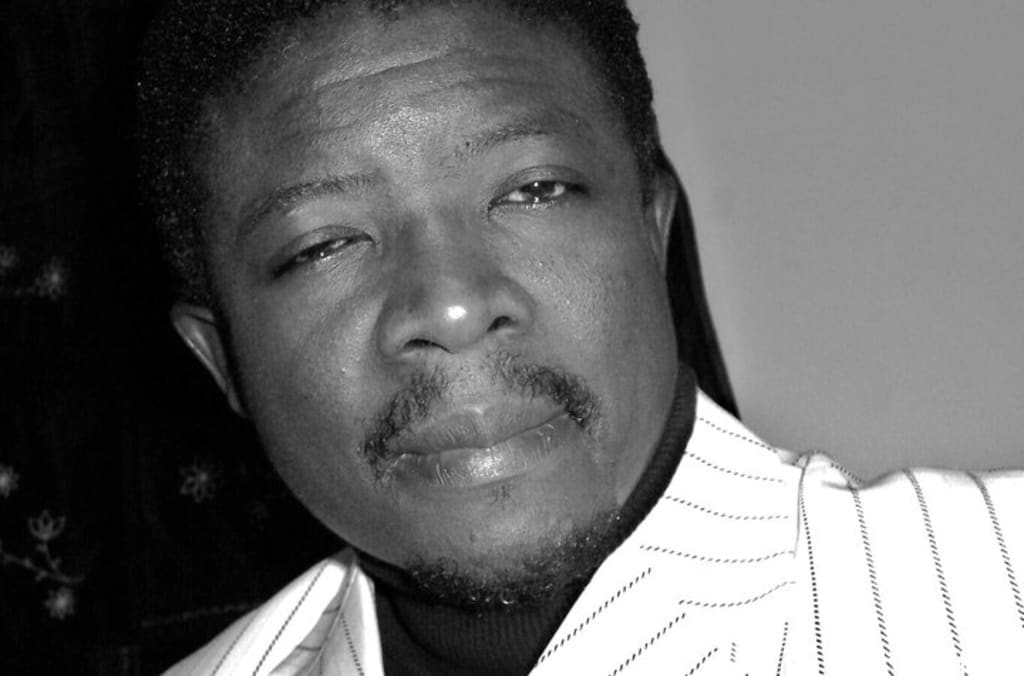Aging & Depression as a Mental Illness
Old Minds!

Depression is one of the most common mental illnesses faced by a number of the Zambian Older Persons, affecting more men and women aged 50 years and above (the adult population).
As a People and as a Nation we cannot run away from our depressed Senior Citizens. Depression is a serious mental illness in which feelings of sadness, hopelessness, loss of interest, anger, frustration, or other negative emotions like irritability (especially in the Elderly) last for weeks or years and interfere with daily life within and outside our communities.
All of us as People experience moments when we feel sad or blue, but these feelings usually pass within a couple of days and are not indicative of depression.
Depression can cause deep emotional pain both to the person experiencing it and, often, to that person’s close family and friends.
Depression is a significant public-health issue that needs to be looked into now and beyond. It is one of the leading causes of disability in Zambia for people ages 65 and above and is the number one cause of injury or illness for men and women around our communities due to lack of support from those close to them. Old People with depression are more likely to die from suicide as well as from other illnesses, such as heart disease.
What Is Depression?
There are several different types of medically recognized depression.
The most common type of depression is called Major Depression, and it occurs when symptoms interfere with the enjoyment of life or with daily functions-including work or lack of work, poor living conditions, sleep, and eating habits-for at least two weeks straight or more depending on care.
Some Old People experience only one episode of Major Depression in their life, while others may go through numerous recurrent episodes of the illness without knowing what is going on until they end up being hospitalized or in a mental hospital.
In comparison, Old People with a condition known as persistent depressive disorder -also known as dysthymia- experience a depressed mood that lasts continuously for at least two years.
Elderly People with dysthymia may experience episodes of Major Depression as well as periods of less severe symptoms.
Other common types of depression include:
Postpartum Depression, in which most of our mothers experience symptoms of major depression after giving birth. Mood impairment is much stronger, and lasts longer, than the “baby blues” — the relatively mild symptoms of depression and anxiety that many new mothers experience. Feelings of extreme sadness, anxiety, or exhaustion can make it difficult for the mother to bond with or care for her baby.
• Seasonal Affective Disorder (SAD), in which depression occurs in during winter, and sometimes fall, and is associated with a lack of sunlight. This depression is typically accompanied by social withdrawal, increased sleep, and weight gain.
• Major Depression with psychotic features, in which severe depression accompanies loss of touch with reality, such as delusions (false fixed beliefs) and hallucinations (hearing and seeing things other people can’t). These psychotic features can focus on a kind of theme, such as illusions of illness or poverty.
• Premenstrual Dysphoric Disorder, in which symptoms of depression develop a week before a woman’s period and pass after menstruation.
Some people who experience depression may have Dipolar Disorder-formerly called Manic Depression-which is characterized by moods that cycle between extreme highs (mania) and lows (depression).
How Many Old People Experience Depression?
In the next twenty [20] years, depression in our Zambian communities is going to be the one of the most common mental health disorders among those aged 45 years and above . And it is becoming more prevalent, especially among adolescents that is of you go Lumumba road not far away from the two major markets in the capital you can see a number of young people on glue. Those kids on glue and alcohol will have a mental disorder that will cost a lot to fix.
In 2017-2018 when I did interviews on 50 street kids on Lumuba Road and Independence Avenue just opposite SDA , 2 out of 10 adults age 18 older living on the Zambian streets-had at least one major depressive episode.
Additionally, 3 out of 10 adolescents of girls living on the streets have been raped before and 2 out of 10 have STI’s and 1 out of 10 have a baby with them, as for the of boys most of them have been beaten before of have been accused to be thugs and-have experienced major depression. The increase in depression rates among adolescents has outpaced all other age groups in our Zambian communities and we need to do something, because in 30 years time those adolescents will be 50 years and above.
Did you know that Persistent depressive disorder affects about 1.5 percent of the adult population.
According to what I found out, women in the Zambia are significantly more likely to experience depression (8.5 percent) than men (4.8 percent).
Among adults, people between ages 18 and 25 are most at risk for depression (10.9 percent), whereas those older than 50 are at the lowest risk (4.8 percent), but in the years to come by the years 2010 about 82 years from now those 50 years and above will be the most at risk
The other thing is we cannot over look racial and ethnic factors which must be are considered, adults who identify with two or more ethnic groups show the highest rate of depression (10.5 percent). I just found out that ethnic factors or groupings can also contribute to the way you will live or do things too now or in the years to come.
Having one depressive episode increases your risk of having another later in life. According to a study in Psychological Medicine, more than 13 percent of people who recover from their first episode of major depression go on to have another episode within five years; 23 percent within 10 years; and 42 percent within 20 years.
Globally, depression affects more than 300 million people of all ages, according to the World Health Organization [WHO]. That is the equivalent of 4.4 percent of the global population.
Depression is the leading cause of disability worldwide. Fewer than half those living with depression-and in some communities where we are found, fewer than 10 percent-receive the care they need. A number of factors prevent people from getting treatment, such as lack of trained health-care providers, social stigma with names give out such as Ba [Chainama,Chizaluki,Mukonye,Mental or Funta Mental, No REG] the list goes on and or the misdiagnosis.
Different Cultures Experience Different Rates of Depression For instance, the prevalence of depressive disorders appears to be low in the aged whose children have money or take care of them well (3 percent of the total population) and high among the poor, the have not, the forgotten ones (6.3 percent).
What Causes Depression? In our Zambian set there are numerous factors now, that can trigger the onset of depression, including bereavement, illness (such as Cancer,HIV/AIDS or Chronic Pain), social isolation or loneliness, and stressful life events (such as divorce or money difficulties). Depression can also occur spontaneously, without any obvious cause.
A person who experiences anxiety is at high risk for developing depression, and vice versa. Nearly half those who are diagnosed with anxiety are also diagnosed with depression.
Scientists don’t know exactly why some people develop depression and others avoid it. Several factors most likely contribute to the development of depression, including:
Genetics (mood disorders and suicide run in families)
Trauma or abuse at an early age, which can cause long-term changes in how the brain deals with fear and stress as we age
Brain structure and chemistry (imaging studies have shown that the frontal lobe becomes less active when a person is depressed)
Substance abuse like the kids we see on our streets who are on glue (approximately 30 percent of people who abuse drugs or alcohol also have depression, requiring a coordinated treatment approach)
Other medical conditions (people with sleep disturbances, Cancer,HIV/AIDS, Chronic Pain, and Attention Deficit Hyperactivity Disorder-ADHD- are more likely to develop depression). This is no time to be putting on masks, we need to help our young ones, who will later become Elders of this Nation.
By Kanema Oliver Mupila Kameya
The Author is a Fellow of the United Nations International Institute on Ageing [INIA], Founder of the Center of Excellence on Ageing and Consultant with Zambia National Marketeers Credit Association.[ZANAMACA].
E- mail:[email protected] or 0979-611-545






Comments
There are no comments for this story
Be the first to respond and start the conversation.